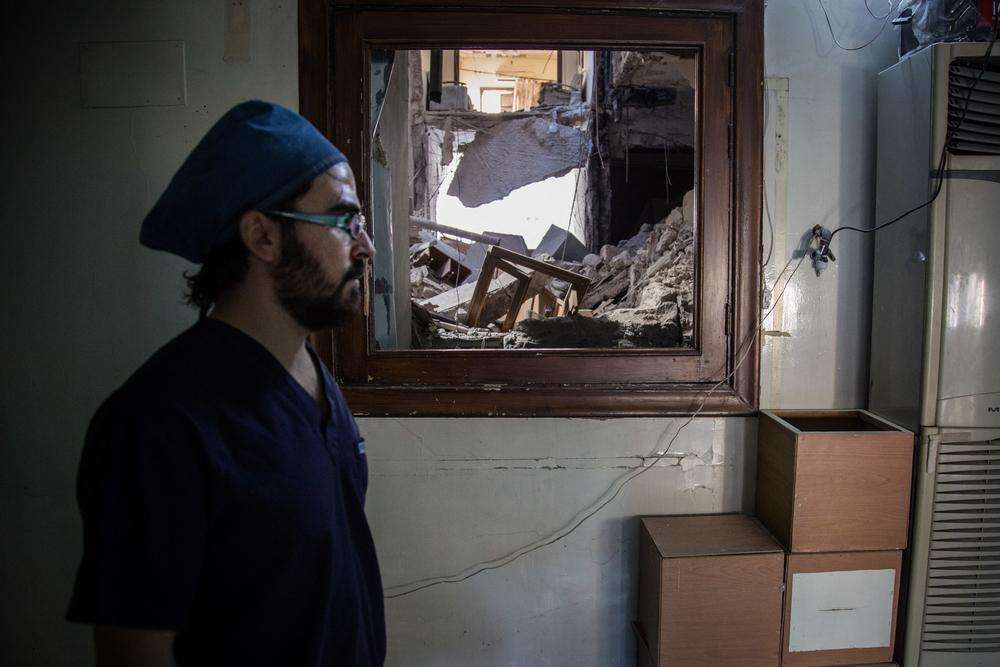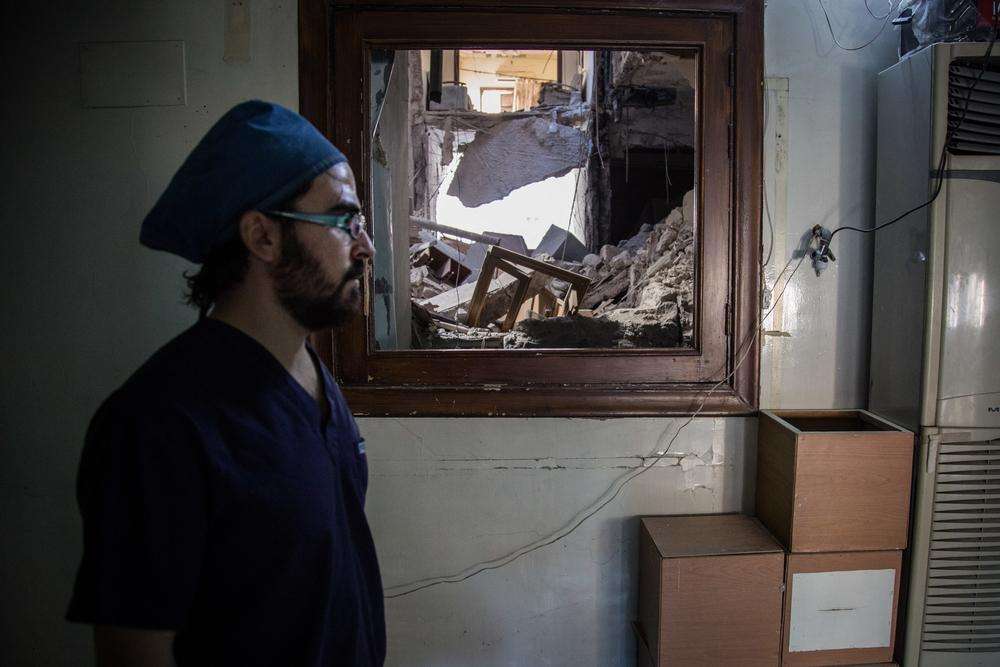By Pablo Marco, Doctors Without Borders/Médecins Sans Frontières (MSF) Middle East Operations Manager
A humanitarian tragedy is unfolding while the world watches and does nothing. Months of siege and the indiscriminate bombing by the Syrian government and its allies have left the population of eastern Aleppo in desperate straits and its health system in tatters.
There is no way out for the 250,000 people there. Meanwhile, food and medical supplies cannot get in. MSF has been providing medical supplies, drugs, and lifesaving surgical kits to eight hospitals in eastern Aleppo since 2014, sending in trucks every three months. Our teams last succeeded in getting some items through in August, during a brief period when the siege was broken by the opposition.
In the meantime, all eight hospitals have been bombed, one up to six times. Altogether they have been hit 27 times, forcing all work to halt on occasion. Staff are doing all they can to keep going.
But they are overwhelmed: no more than 32 doctors are thought to be left.
These medics work around the clock to help. In the recent period of intense airstrikes, between September 22 and October 19, more than 2,100 people were wounded, including 436 children. Patients die because there are not enough operating theaters and doctors.
Often the wounded are unable to reach a hospital in time. At least six ambulances have been targeted, some destroyed. Spare parts don’t get through. Medical supplies, fuel for generators, drinking water, and almost every other essential are running low.
The medical consequences of living in this environment are deeply shocking. The doctors we support are concerned about a potential increase in malnutrition in young children and in water-borne diseases. Some mothers are too weak to breastfeed, and a lack of formula milk and other basics is leading to preventable deaths. Routine vaccinations are suspended. All this is a big threat to the most vulnerable, including children, pregnant women, and patients with chronic diseases.
What is needed is an end to all indiscriminate airstrikes on civilian areas, respect for medical facilities and patients, and an end to the crippling siege.
The seriously injured or ill must be evacuated to safe areas for treatment. Medical supplies and humanitarian aid must be allowed in, and respite given to a city falling apart day by day, hour by hour, and minute by minute.
Read More: Medical Staff Struggle to Cope as Eastern Aleppo Siege Enters Fourth Month





